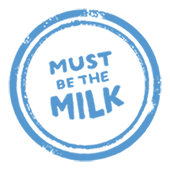It seems like food labels are more crowded than ever with statements about what is and isn’t in food. From non-GMO to natural, it’s hard to know what to think or believe. What does it all mean, and does it matter?
Many food label claims speak to the safety, nutrition, ingredients, and even production practices in making food. Unfortunately, not all of them are as meaningful as you might have been led to believe. Here are six food label claims that should make you think the next time you see them in the supermarket.
#1 GMO-free or Non-GMO
A lot has been said and written about GMOs (genetically modified organisms) or bioengineered food. Put simply, GMO food is a modern version of plant breeding that is more targeted. Instead of hoping two plants produce a new breed with the right new traits (rather than mutating), bioengineering makes the exact change at a genetic level. This is safer than traditional breeding and has never been linked to any illness or negative effect.
There are only 10 crops that are GMO in the U.S.: alfalfa, apples (non-browning), canola, corn (field and sweet), cotton, papaya, potatoes, soybeans, squash, and sugar beets.
As you can see, dairy isn’t on the list. There are no GMO dairy cows, so there is no GMO milk. Even if a cow eats feed that is GMO, the cow and the milk don’t magically become GMO. Some ingredients added to yogurt and ice cream like sugar could be GMO, but not likely. Non-GMO labeling on dairy is misleading to say the least.
#2 Clean
Clean food usually refers to a food with few ingredients that has been minimally processed—think any food that’s not boxed or packaged. Foods like meat, fresh produce, and milk have few ingredients. In fact, milk only has three ingredients: milk, vitamin A and vitamin D. Longer lists aren’t necessarily bad; some ingredients are added for taste, texture, and food safety.
As for processing, some processing is good. Homogenization, pasteurization, aging, canning, drying, milling, washing, sorting, and cooking help make food more consistent, safer, and healthier. Less processed is not always healthier or better.
If you want “clean” food, wash it!
#3 Responsibly produced/sourced
This claim is a promise that food isn’t being produced in a way that is having a negative impact on farmers, their local communities, or the environment. It’s often used to refer to animal care, use of pesticides and fertilizers, protecting water and soil, fair trade, and employment practices.

While this really speaks to the values of many consumers, it doesn’t mean a food without this claim is produced irresponsibly. Farmers depend upon healthy animals, social, air, water and communities to thrive and produce wholesome food. Dairy farmers in our region are essential parts of the community and the fabric of New England, and practice sustainable agriculture every day.
Responsible production practice is standard practice for New England dairy farmers.
#4 Organic
I always hear people say, “organic is better.” The actual definition of organic food from the USDA is “a labeling term that indicates that the food or other agricultural product has been produced through approved methods.” In other words, organic refers to the growing and raising practices, not to the healthfulness or safety of food. In fact, organic doesn’t even mean pesticide-free because there are nearly 30 approved pesticides that are poisonous to bugs, weeds, and potentially humans.
I also often hear, “cows should be in the pasture all year.” To be organic, cows must be in pasture for 120 days over the year. In New England, that’s the spring and summer (I dare you to stay in a field all day in the middle of a February snow storm in Vermont).
Many farmers in our region, even if not organic, pasture their cows when the weather gets warmer. But not too warm because cows don’t like extreme heat, and the pasture has few opportunities for cover and cool like temperature-controlled barns.
#5 Antibiotic and/or hormone free
People are concerned about antibiotic use in farming and the impact on antibiotic resistance in humans; that’s understandable. But did you know that beef cannot enter the market with antibiotics still present? As for dairy, cows are treated with antibiotics only when they’re sick (like you when you have bronchitis). A treated cow has her milk separated and discarded. Only after she’s better and her milk tests clear of antibiotic residue is her milk used. To make sure your milk is safe and high-quality, milk is tested up to 17 times between the farm and the supermarket.
As for hormones, all living things like plants and animals naturally produce hormones. In cows it’s called “bovine somatotropin.” Milk has a minuscule amount of natural hormones that are mostly destroyed by pasteurization and further eliminated during digestion. The same is true of cows given synthetic hormones or rBST (recombinant bovine somatotropin). In short, you don’t need to be concerned about early puberty as some people claim.
Both “antibiotic free” and “hormone free” claims are designed to make you concerned about something that doesn’t exist or doesn’t enter your system.

#6 Natural
Natural is a marketing word, not a claim. It says nothing about the production, safety, or nutrition of a food product. The FDA (Food and Drug Administration), the group that regulates what can be said on food labels, does not have an official definition for natural. However, they have a general view that it means “nothing artificial or synthetic (including all color additives regardless of source) has been included in, or has been added to, a food that would not normally be expected to be in that food.” Of course, this is open to interpretation from food companies and hasn’t been enforced.
Don’t be lured into purchasing a food because it’s “natural.” After all, arsenic is natural, but I wouldn’t recommend eating it!
The best thing you can do is eat a variety of foods including vegetables, fruit, whole grains, dairy, and proteins like meat and beans. Label claims are everywhere trying to persuade you to buy that special something for some special reason. Before you put something in your shopping cart because of a label claim, take a second to give it some thought. You might save yourself some dollars and some headaches.


